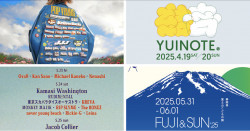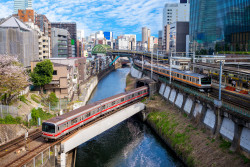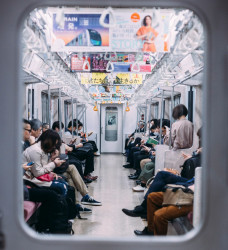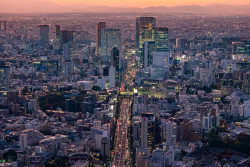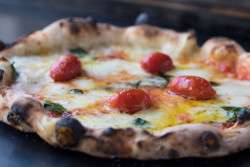
Originally published on metropolis.co.jp on April 2013

With the Fukushima Daiichi nuclear power plant recently in the news again for all the wrong reasons, some parents may be reassured to learn that Shibuya-based Korean restaurant Soul of Seoul (B1 Mitake Bldg, 1-2-5 Shibuya, Shibuya-ku) sources its foodstuffs and water far from any potentially contaminated areas. Much of the produce used in the restaurant’s meals, such as the beef kalbi (¥980), comes from Kyushu, while the water used to make the ice is Crystal Geyser from the USA. For further peace of mind, the company lists farmers and distributors on its home page, and states that a Geiger counter is used to test the food.
Yakiniku fans can choose from an incrementally priced range of meats—harami cuts range from ¥1,800 to ¥3,200 according to the meat’s quality—or plump for one of Soul of Seoul’s many courses, which include a number of kimchi, appetizers, different meat grills and rice.
Mamas (or papas) with prams and strollers will appreciate the restaurant’s spaciousness. A recent lunch visit saw a number of young mums taking advantage of the opportunity to dine on Soul of Seoul’s lunch sets, most of which cost ¥1,000 including use of the drinks bar.
The bibimba set will satiate the most ravenous of appetites. Filled almost to capacity, the warm stone bowl of rice is crowned with seasonal vegetables and a raw egg, plus a dollop of gochujang, the fermented red pepper paste and workhorse of Korean cuisine.

Another Korean restaurant, School Food (3F K Plus Store 1-8-4 Okubo, Shinjuku-ku), is more suited to the “parents with tweenagers” set. Located atop a supermarket on Shokuan Dori, the cavernous space is dotted with other restaurants in hawker-market style—a trend seen across the local Korean restaurant district. Huge video screens blaring K-pop videos alert patrons that the venue also moonlights as an occasional live house. K-pop fans and easily distractible teenagers will be in their element.
The specialty of this venue is, as the name implies, school cafeteria food. Such cuisine sometimes gets a bad rap and while that found at School Food doesn’t necessarily help the genre’s reputation, less discerning palates may be swayed by the gimmicky food on offer. The mainstays of School Food’s menu are variations of tteokbokki (stir-fried rice cakes) and colorful kimbap, the Korean version of norimaki sushi rolls.
Assorted varieties are artfully arranged in a heart shape with the tagline “blooming mari,” another name for the rolls. Blooming marvellous these ain’t, however, though the curiosity factor may appeal to diners tiring of normal sushi.
Chewy in texture but failing to meet any real gastronomic mark, the black squid-ink mari (¥680) come with a side serving of heat-inducing pickles. They’re pretty and visually make a great change from any other rolls on offer. Similar can be said for the double egg and nori -wrapped mari, filled with ham and takuan pickles (¥580). Those with a porcine bent may be keen to try the spam mari, a popular item on the menu and seemingly a staple Korean school cafeteria item. Who knew?
School Food loftily claims its tteokbokki (toppoki in katakana) as the most delicious in Shin-Okubo. The unique carbonara and cheese-laden versions (¥880) provide a nice counterpart to the more fiery and thirst-inducing kirukori (¥680), in which the rice cakes are stir-fried with fish cakes, onion, napa cabbage and carrots in an ultra spicy gochujang sauce. It’s doubtful that nama beer (¥450) is on the menu at school cafeterias in Korea, but there are also a number of soft drinks and tea (¥250) on offer for the teens.
